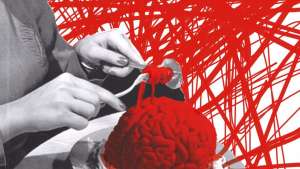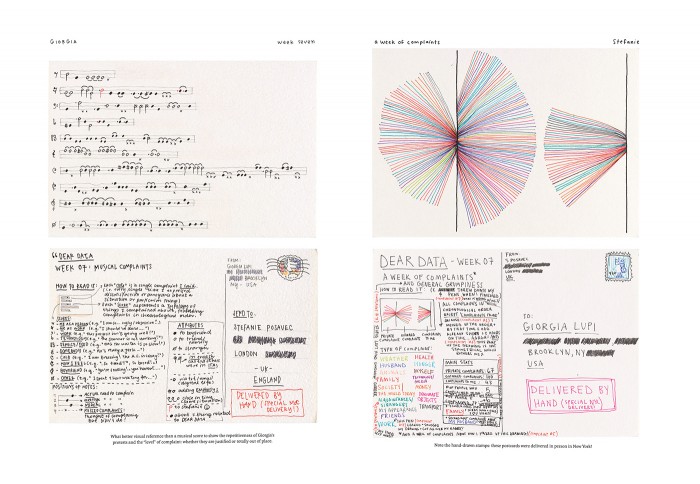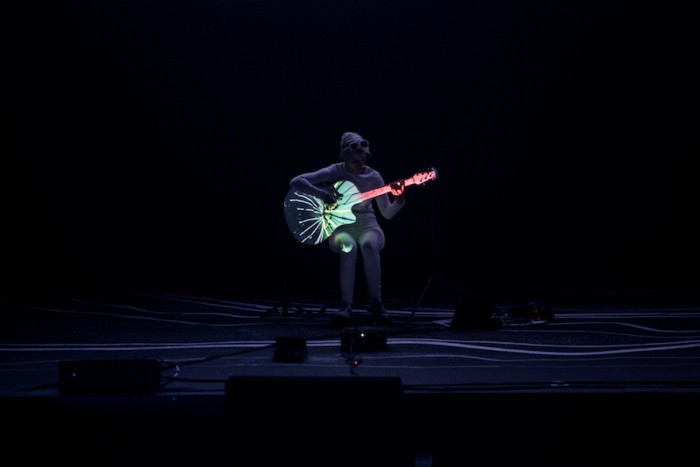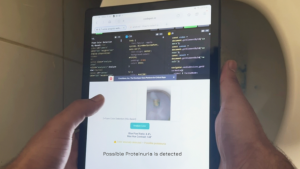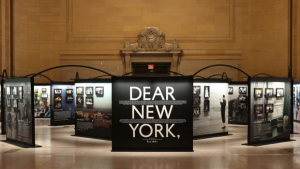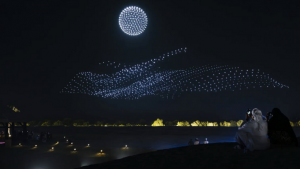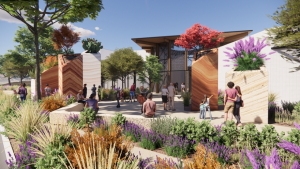From the Series
For most people, the words 'visual data' bring to mind images of impersonal bar graphs and pie charts that live in the realm of statistics and planning. But for information designer Giorgia Lupi, data is a filter through which people view their lives and have their lives understood and explored by others. At the Design Indaba Conference 2017, Lupi pushed the boundaries of her analog concept in a never before seen collaboration with musician Kaki King. The unlikely pair set out to answer a question: Can we really feel data?
Lupi, a designer living in New York, is known for Dear Data, a yearlong correspondence between herself and designer Stefanie Posavec, an American woman living in London. Across the Atlantic, the two would send handmade postcards detailing their behaviours.
The lines, spirals, colours, blocks and more would depict anything from the number of times they had each complained to the number of times they each had walked through a door. The project revealed intricate patterns about each individual, a self-portrait that speaks to a concept called Data Humanism, where data is represented through the subjective lens of the individual.
In a different genre entirely, percussive guitarist and composer Kaki King takes her audience on a visual and auditory journey. For her most recent show, “The Neck is a Bridge to the Body”, King created a multimedia performance where images were projected on to both her guitar and the wall behind her. We spoke to the improbable duo about the value of stepping outside of their comfort zones in order to change the dynamic in their own works. For Kaki, her move to enhance her musical performances with projection mapping led to her discovery of data visualisation.
“I’ve been awkwardly, patiently navigating my way through that world because I’m a guitarist by trade. For me visuals are very new, they’re something I’ve never really worked with before,” explains King. “But having someone like Giorgia translate what I do into something that can be seen is really amazing. The way that she does it is really incredible.”
Lupi adds; “We wanted to see if it’s possible to get to know another human through data only. Dear Data helped me understand how human-scale data or small scale data can help people understand what data is. We’ve seen a lot of people that experiment with data, even teachers are using the Dear Data format to show students the worth of data. It’s really made data more approachable.”

